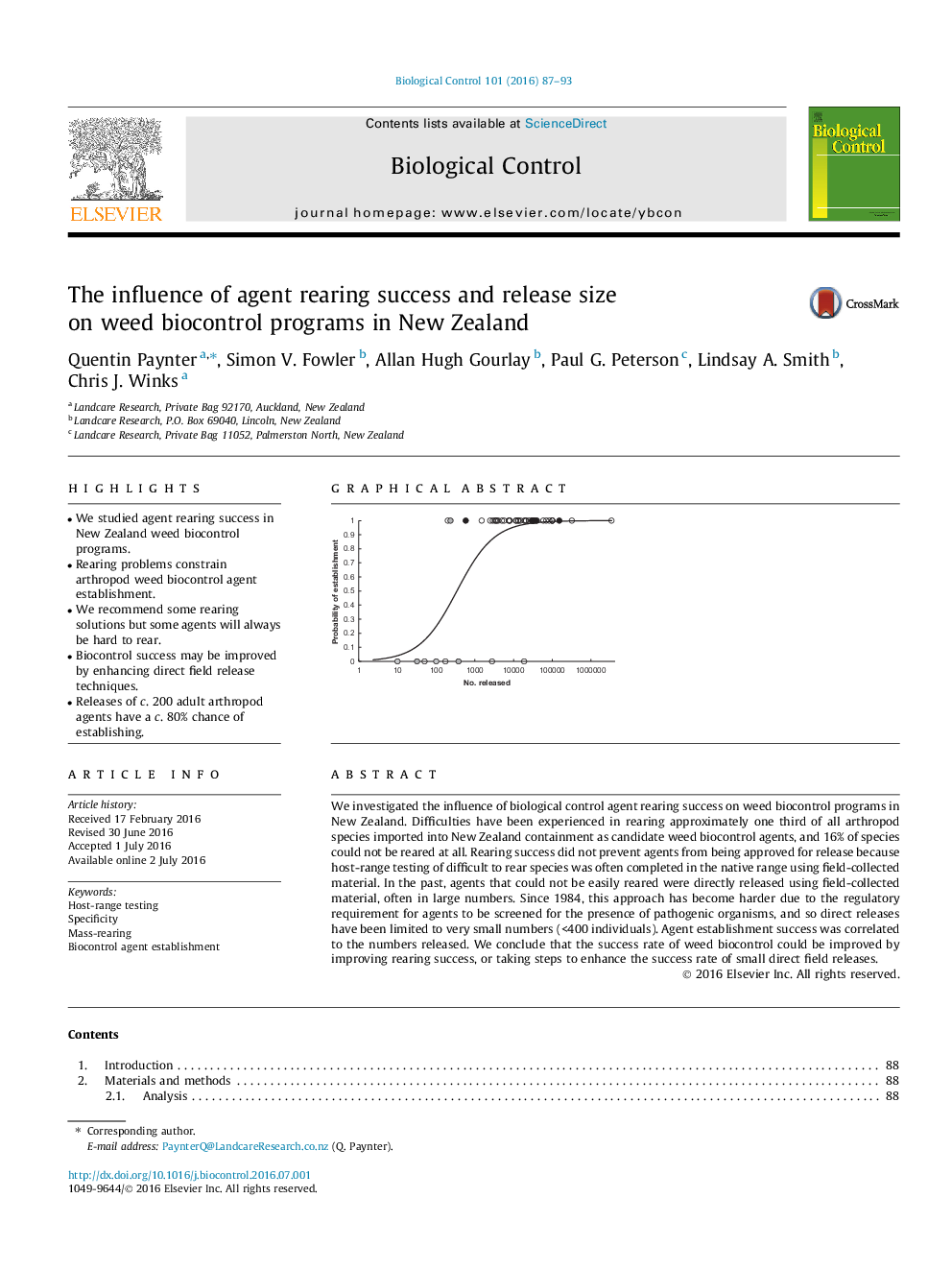| Article ID | Journal | Published Year | Pages | File Type |
|---|---|---|---|---|
| 4503608 | Biological Control | 2016 | 7 Pages |
•We studied agent rearing success in New Zealand weed biocontrol programs.•Rearing problems constrain arthropod weed biocontrol agent establishment.•We recommend some rearing solutions but some agents will always be hard to rear.•Biocontrol success may be improved by enhancing direct field release techniques.•Releases of c. 200 adult arthropod agents have a c. 80% chance of establishing.
We investigated the influence of biological control agent rearing success on weed biocontrol programs in New Zealand. Difficulties have been experienced in rearing approximately one third of all arthropod species imported into New Zealand containment as candidate weed biocontrol agents, and 16% of species could not be reared at all. Rearing success did not prevent agents from being approved for release because host-range testing of difficult to rear species was often completed in the native range using field-collected material. In the past, agents that could not be easily reared were directly released using field-collected material, often in large numbers. Since 1984, this approach has become harder due to the regulatory requirement for agents to be screened for the presence of pathogenic organisms, and so direct releases have been limited to very small numbers (<400 individuals). Agent establishment success was correlated to the numbers released. We conclude that the success rate of weed biocontrol could be improved by improving rearing success, or taking steps to enhance the success rate of small direct field releases.
Graphical abstractFigure optionsDownload full-size imageDownload as PowerPoint slide
